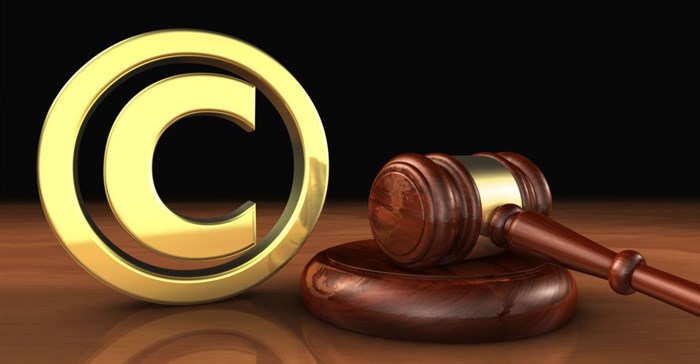The recent announcement that the National Council of Provinces (NCOP) plenary has officially passed the flawed Copyright Amendment Bill has disheartened the creative industry.

Source: © 123rf
123rf The recent announcement that the National Council of Provinces (NCOP) plenary has officially passed the flawed Copyright Amendment Bill has disheartened the creative industry
In this article, the Copyright Coalition of South Africa (CCSA) expresses its concerns.
The Coalition is a broadly representative group mainly comprised of local trade and industry associations representing hundreds of local companies that drive investment into SA’s creative and education sectors, creating jobs and opportunities for tens of thousands of SA’s creatives in the publishing, music, film, animation, and other industries, seeks to protect the rights of content creators and campaigns for the redrafting of the Copyright Amendment Bill.
The over-broad Fair Use provision
The Bill, which still includes the over-broad Fair Use provision, is now with the National Assembly, raising concerns about establishing common ground that addresses the interests of all parties involved.
Furthermore, revised versions of the remitted Copyright Amendment Bill, passed by the NCOP on 26 September 2023, have been sent back to the National Assembly's Trade & Industry Committee for concurrence.
The creative industry had sincerely hoped that the Bill would face serious opposition given the impassioned plea for common sense to prevail, and numerous engagements conducted along the depth and breadth of the entire stakeholder universe.
“We have consistently advocated for fair copyright legislation by engaging policymakers and legislators about our reservations on certain inclusion in the bill, such as the over-broad Fair Use provision and its potential impact on copyright owners.”
A critical juncture
This development represents a critical juncture in the path towards the potential enactment of the Bill, marking a significant step towards it potentially becoming law, creating a multitude of unintended consequences and leading to unprecedented legal uncertainty.
It raises concerns about the potential for an erosion of South Africa's creative industry, which may have lasting repercussions for future generations.
The impact of Artificial Intelligence (AI)on its creative sector
Notably, South Africa has yet to undertake a comprehensive study to assess the impact of Artificial Intelligence (AI)on its creative sector.
AI threatens in combination with the flawed bill to degrade the high-quality value-add creative and cultural sectors to being the next commodity to be appropriated and exploited by foreign predominantly big tech players who do not pay taxes or add value beneficiation to South Africa.
The creative industries have long struggled to achieve financial stability, and with the passage of the Bill despite numerous objections from industry leaders, it seems that the final blow has been dealt to an industry already hanging on by its fingernails.
“As industry representatives, we have continuously called for thorough engagements with all stakeholders.”
Jani Cronjé and Jared de Canha 11 May 2023 No longer sufficiently protected
The Bill in its current form, will result in the works of creatives no longer being sufficiently protected under the hybrid Fair Use provision.
Although educators and academics laud the inclusion of the Fair Use provision, they fail to consider the broader perspective.
While no learner, student, or academic will be negatively impacted, the copyright owners and creators will bear the brunt of the consequences.
Every qualifying student in South Africa in theory already enjoys fully funded access to learning material by the state through NSFAS.
Thus, in theory the creative industry’s objection to the over-broad Fair Use might seem over-blown and “pro-biller” interests claim that there will be harm to our education system are unfounded.
Additionally, the impact on the South African publishing sector will greatly diminish the options and choice available to South African authors to find outlets for their creativity.
The result will be that South Africa will have to rely on foreign textbooks, a bit like Canada now relying entirely on US textbooks instead of Canadian home-grown materials.
Creative industry remains open to dialogue
“We are witnessing an alarmist position taken by people with a singular agenda to promote one narrow interest at a great expense to the rest of our creative society: the narrow interest is most closely associated with big tech sector that looks to copyright works as free (gratis) “click-bait” and driver for foreign offshore advertising revenue.”
Although the over-broad Fair Use provision may seem like a way to encourage the free sharing of ideas or increase access to creative works, it's important to consider the possible adverse effects on the creative industry and individual creators who will have no other avenue but to litigate to be remunerated for the use of their copyright.
The creative industry remains open to dialogue with lawmakers and all other stakeholders whose views are contrary to the creative industry’s position.
The continuous use of the findings and recommendations of the Farlam Commission in the working models of collecting management agencies are simply outdated.
Over the years, several initiatives have been implemented to address these concerns, raising those issues now in defence of the Copyright Amendment Bill is an underhanded attempt to weaponise the Farlam Commission report.
Joshua Leroni & Carla Collett 26 Apr 2023 A serious threat to SA creative industry and economy
We represent hundreds of thousands of people in the creative industries gravely concerned about the provisions within the Copyright Amendment Bill, which, if signed into law in its current form, will pose a serious threat to South Africa’s creative industries and economy.
However, the industry is determined to soldier on and will continue to endeavour to bring clarity to the many perilous provisions in the Bills.
We simply do not have a choice; we want to engage in good faith with those who have concerns should it come to it, we are prepared to go all the way to the Constitutional Court to oppose the path currently pursued by lawmakers and those who appear to be steadfastly lobbying for the Bill to pass into law.












































